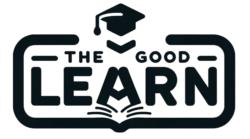Identifying your learning style is paramount when selecting the ideal learning platform. Each person’s preferences vary: some gravitate towards visual aids like videos and infographics, while others excel through reading or engaging in interactive discussions. By understanding your preferred mode of learning, you opt for a platform that complements your style, enhancing your overall educational journey.
Online courses and tutorials
The popular option for financial education is online courses and tutorials. Websites offer a wide range of courses on personal finance, investing, and economics. These courses are often taught by industry experts and provide structured learning materials, quizzes, and assignments to reinforce your understanding. The flexibility of online courses allows you to learn at your own pace and fit education into your busy schedule. When selecting an online course, consider factors such as the instructor’s credentials, course reviews, and the depth of the curriculum. Look for courses that cover the specific topics you’re interested in, whether it’s budgeting, investing, or retirement planning. Some courses may even offer certificates of completion, which can be valuable for demonstrating your knowledge to potential employers or clients.
Educational blogs and websites
An excellent resource for financial education is educational blogs and websites. These platforms provide a wealth of information on various financial topics, often presented in an easy-to-understand format. Websites offer articles, guides, and tools to help you navigate the world of personal finance. When exploring educational blogs and websites, look for reputable sources with a track record of providing accurate and unbiased information. Check the author’s credentials and read through the comments section to gauge the level of engagement and discussion among readers. Many of these websites also offer newsletters or email updates, allowing you to receive the latest financial news and tips directly in your inbox.
Podcasts and youtube channels
For those who prefer audio or video content, podcasts and YouTube channels can be excellent learning platforms. Podcasts offer insights and advice on personal finance, investing, and economic trends. These podcasts often feature interviews with financial experts and cover a wide range of topics, making them a convenient way to learn while commuting or doing household chores. YouTube channels dedicated to financial education have also gained popularity in recent years. Channels provide engaging video content on budgeting, investing, and financial planning. A review on YouTube is an effective way to gauge the quality and relevance of a channel’s content before committing to watching multiple videos. When selecting podcasts or YouTube channels, consider the host’s expertise, the production quality, and the relevance of the topics covered. Look for content that aligns with your financial goals and provides actionable advice you implement in your own life.
Interactive learning communities
Engaging with like-minded individuals enhances your financial education experience. Interactive learning communities, such as forums, social media groups, and online workshops, provide a platform for discussion, collaboration, and peer support. Participating in these communities allows you to ask questions, share your experiences, and learn from others who are on a similar journey. You benefit from the collective knowledge of the community and gain valuable insights that may not be available through traditional learning resources.

